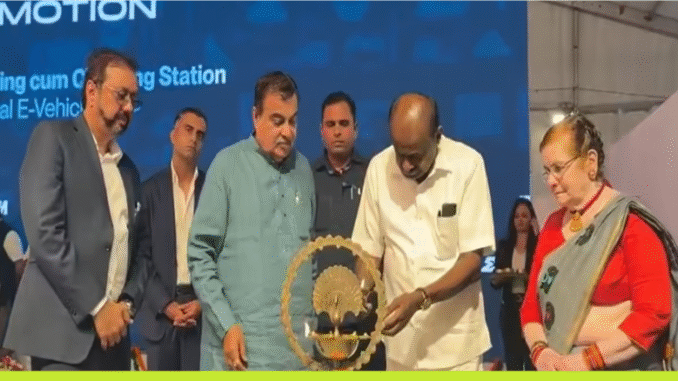
India marked a major leap in green logistics as Nitin Gadkari, Minister of Road Transport and Highways, inaugurated the country’s first commercial electric truck battery swapping and charging station at the Delhi International Cargo Terminal in Panchi Gujran village, Sonipat. The landmark facility, developed by Energy in Motion, signals the transition to electric and biofuel solutions in transport, with positive impacts on costs, environment, and farmer incomes.
Driving India Towards Sustainable Transport
At the inauguration, Gadkari called for transporters to shift from diesel and petrol to electric and biofuel alternatives, emphasizing that decisive action will lead to substantial benefits in cost reduction and pollution control. He reiterated his commitment to alternative fuels with conviction, noting the crucial role advanced technologies and policy changes are playing in transforming the Indian logistics sector.
- Annual fuel import bill: ₹25 lakh crore
- Targeted logistics cost by end 2025: 9% of GDP (currently about 13–14%, down from 16%)
- Battery price drop in past years: 50–60%
- Sonipat swap station battery swap time: 7 minutes per truck
From Farms to Fuel: Empowering Farmers and Innovating Biofuels
Gadkari highlighted that India’s switch to cleaner transport is fundamentally empowering farmers, allowing them to produce energy besides food. He shared examples of bioethanol being made from stubble, sugarcane, and other waste materials, and described projects using farm residue for road construction and megatonne-scale biofuel production.
- Biofuel projects: Road construction in Nagpur (Maharashtra) and Jabalpur (Madhya Pradesh) using stubble
- Biofuel production from stubble: Target of 5 million tonnes annually
- Minister’s personal example: Arrived at event in bioethanol-powered vehicle
Rapid Technology Adoption and Logistics Progress
Noting the transformative impact of EV technology, Gadkari spotlighted dramatic battery price reductions over recent years and the rollout of flexi-engines for agricultural machinery. The new swapping station, offering seven-minute battery swaps for heavy vehicles, is set to improve efficiency and support faster, lower-cost, and less polluting freight.
- Reduction in logistics expenses: Down 6% in recent years; single-digit target within reach
- Transport rates: In single digits, with improved road infrastructure driving further savings
- Multimodal network impact: Combining road, rail, and waterways for additional cost and fuel savings
National Leadership and Vision
Union Heavy Industries and Steel Minister HD Kumaraswamy joined Gadkari and senior BJP leaders at the event, demonstrating wide government support for future-ready transport. The Union Minister’s remarks connect the inauguration to broader goals like Net Zero emissions by 2070 and sustainable agricultural growth through clean energy.
Looking Ahead: Clean, Cost-Efficient Logistics
The launch in Sonipat is more than just a technological milestone but a visionary leap for clean transport—combining infrastructure innovation, policy momentum, farmer-centric economic growth, and a commitment to lowering nationwide logistics costs. As Gadkari affirmed, India’s transport sector is on an unstoppable path to diesel-free, environmentally responsible, and globally competitive logistics.



